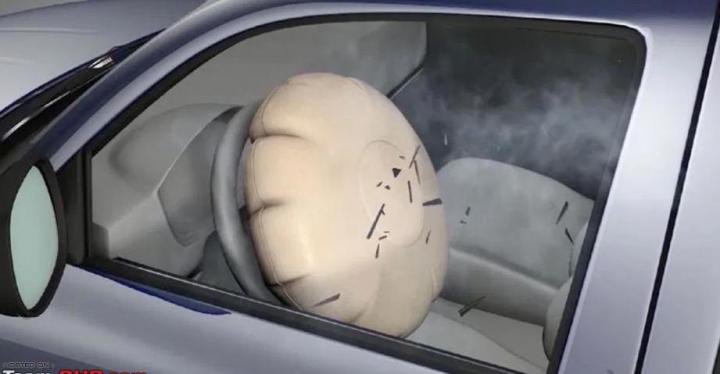News
What is the Takata Airbag fiasco and what makes it so dangerous
The recalls, initiated in 2008 and still ongoing in 2024, have affected millions of vehicles worldwide.
BHPian MotorDev recently shared this with other enthusiasts.

Tata Safari crash test, 2023
Introduction
When we think about car safety, airbags are often the first thing that comes to mind. Airbags are highly effective and now mandatory in most vehicles. However, the Takata Airbag issue has been a serious concern in the automotive industry, raising questions about the safety of these life-saving devices.
Takata, once the world's largest airbag manufacturer, became infamous for producing faulty airbags that posed serious risks to drivers and passengers. Major car manufacturers like Honda and Toyota installed Takata Airbags in their vehicles, leading to widespread recalls and free replacements for affected vehicles.
Before we talk about Takata, let's learn how airbags work in a crash:

Skoda Slavia crash test, 2023
- In a crash, your head is dangerously close to the steering wheel or dashboard. That's where airbags come in. They need to inflate rapidly, within milliseconds, to cushion your head before it hits hard surfaces.

Image source: Biturbo Media
- When a car collides, it decelerates abruptly, coming to a sudden stop. This triggers the accelerometer, a device that senses this rapid deceleration. The accelerometer sends signals to the airbag control unit (ACU). If the ACU detects a high-intensity crash, it activates the airbag inflator.
- Once the signal is received, a chemical reaction is set off in the inflator. This reaction releases gas quickly, creating pressure that inflates the airbag, providing a cushioning barrier between you and potential injury.

The problem with Takata Airbags (2001) emerged from the use of ammonium nitrate, an explosive compound, instead of the safer Tetrazole chemical. This cost-cutting measure led to airbags malfunctioning, sometimes even deploying randomly without a crash, causing serious injuries or fatalities. Metal parts called shrapnel were known to explode from these airbags during accidents, causing severe injuries.

Shrapnel from Takata Airbags
The recalls, initiated in 2008 and still ongoing in 2024, have affected millions of vehicles worldwide. Honda alone had to recall 22 million cars. The replacements are offered free of cost, but the impact on Takata was severe, leading to bankruptcy and closure in 2018.

The safety authorities have advised car owners not to drive their vehicles until the faulty airbags are replaced. The recalls continue to this day, with affected car owners urged to check the NHTSA website for information. In response to the Takata Airbag issue, car manufacturers like Skoda have created separate portals for Takata recall checks, ensuring the safety of their customers.
Credits
- Biturbo Media
- Los Angeles Times
- Global NCAP
Check out BHPian comments for more insights and information.



















